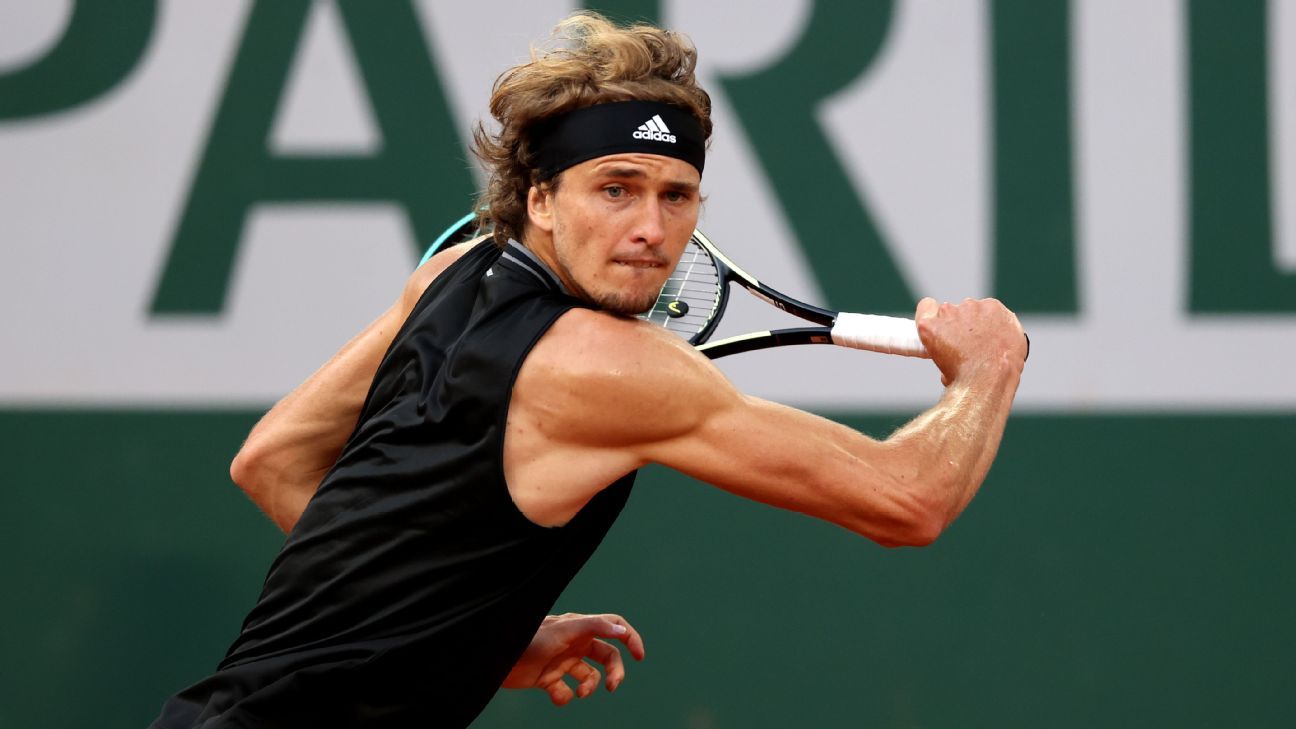PARIS — Alexander Zverev did not want to believe that his opponent in the French Open quarterfinals had saved a break point with a shot that landed on — or was it merely near? — a line in the fourth game Tuesday.
So Zverev crouched down near the mark on the red clay and engaged in a bit of an argument with chair umpire Alison Hughes, repeatedly saying, “No!” and then “How?”
Hughes, whose call was backed up by an unofficial video rendering shown on TV, didn’t budge, and Zverev quickly lost that game, then the next one, too, to fall briefly behind. Could have been the start of an unraveling.
Instead, showing the way in which he stays cooler at crucial moments in the sport’s biggest tournaments these days, the sixth-seeded Zverev recovered quickly, grabbed 16 of the remaining 19 games and easily moved into his third major semifinal by defeating Alejandro Davidovich Fokina 6-4, 6-1, 6-1.
“Obviously the Grand Slams are the tournaments that we want to win the most. Before, maybe the last few years, I was putting too much pressure on myself,” said the 24-year-old Zverev, who was the runner-up to good friend Dominic Thiem at last year’s U.S. Open.
“I was not very patient with myself, which I feel like now, maybe, I learned how to deal with the situation a little bit better, I’m maybe a little bit calmer at the tournaments,” he said. “But the end goal hasn’t changed.”
The German will participate in his first semifinal at Roland Garros against either No. 2 Daniil Medvedev of Russia or No. 5 Stefanos Tsitsipas of Greece. Their quarterfinal was contested Tuesday night.
“I played solid so far. I know that the matches, (from) the semifinals on, are not going to get easier. I think the opponents there are extremely difficult to beat, so I got to play the same or raise my level even higher to have a chance,” Zverev said. “But I’m comfortable.”
Zverev was able to contain whatever was roiling inside after what, to him, perhaps felt like a critical moment — even if it came after just 20 minutes of play against the 46th-ranked Davidovich Fokina, a 22-year-old from Spain who loves to use drop shots.
But after getting broken three times in the opening set, Zverev never faced so much as one break point the rest of the way.
And he played so much more cleanly that Davidovich Fokina, who wound up with 37 unforced errors to Zverev’s 16.
Zverev began this French Open in the worst way possible last week: He lost the initial two sets he played — 6-3, 6-3 against qualifier Oscar Otte.
But Zverev hasn’t dropped one since, completing a comeback in five against Otte to start a run that has now stretched to 15 sets in a row.
“After the first round, it kind of started to go very smoothly,” Zverev said. “I’m happy about that.”
Information from The Associated Press was used in this report
